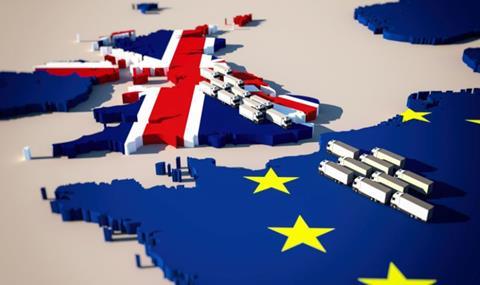
Logistics UK has reacted with optimism to the Free Trade Agreement (FTA) reached today (24 December) between the UK and EU but has cautioned that there is still much to be done to protect the nation’s supply chains, and the economy as a whole.
“A deal is great news for the UK economy,” said Elizabeth de Jong, the group’s policy director, “since it removes the risk of tariffs being placed on almost every item imported from the EU, which would have raised prices and slowed the rate of economic growth.
"We are still absorbing all the details, but it looks as though HGVs will continue to have access to the EU market, and aircraft will still be permitted to fly to and from the EU, which safeguards the UK’s highly interconnected supply chains and protects the jobs of those charged with keeping the country stocked with the goods it needs.
“Meanwhile, Logistics UK is urging traders to continue to get ready for new trading conditions as they were before, as the new trading relationship will still require many of the same preparations, not least the introduction of customs declarations and additional checks on food and livestock. Logistics UK is advising traders not leave paperwork to the last minute, or ignore it, as this will cause delays to journeys.”
Also reacting to the news, BVRLA chief executive Gerry Keaney said: “This Brexit trade deal comes as a big relief and will provide a welcome boost for the UK automotive sector, which can now plan for 2021 and beyond with more confidence and certainty.
"Avoiding tariffs on vehicles and parts is essential, but with the end of the transition period only days away, there is a lot to be done to prepare for January and beyond as details around the new trading terms become clear.”
Added SMMT chief executive Mike Hawes: “We welcome today’s agreement of a new EU-UK trading agreement, which provides a platform for our future relationship. We await the details to ensure this deal works for all automotive goods and technologies, including specifics on rules of origin and future regulatory co-operation.
“A phase-in period is critical to help businesses on both sides adapt and efforts should now be sustained to ensure seamless implementation, with tariff-free trade fully accessible and effective for all from day one. We will continue to work closely with government to ensure all companies are as prepared as possible in the limited time left.”














